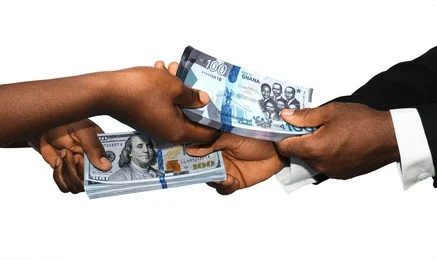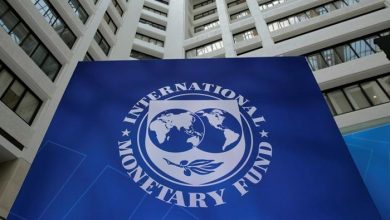Cedi’s recent slip and why the Central Bank insists stability is intact

The Bank of Ghana has sought to reassure the market that the recent slip of the local currency is not a reversal but an adjustment brought on by seasonal trade patterns and reforms.
The Central Bank further points to gross international reserves of about $11 billion, sound monetary policy, and regulatory tightening as anchors of the currency’s stability, or, if you like, modest depreciation.
For now, the cedi has appreciated about 21% year-to-date, still ranking with other major trading partners, the Dollar, British Pound, the Euro, and even currencies such as the Russian ruble, Swedish krona, and Swiss franc, at least the Governor of the Bank of Ghana has said.
On the forex market as of midday today, Tuesday, September 16, 2025, the dollar rate was 13.40 [Buying], 13.80 [Selling] – British Pound 17.80 [Buying], 18.20 [Selling]; that of the Euro – 15.50 [Buying], 15.80 [Selling].
Suffice to say, the local currency has this year been oscillating between world-beating gains and sharp losses – developments which highlight both resilience and fragility of the cedi.
The history
The currency opened 2025 at GH¢14.80 to the dollar. It weakened modestly to GH¢15.40 by February. For two months it held steady. It was one of the longest stretches of stability in over a decade. But between April and May, there was a dramatic turnaround.
The cedi increased in about 34% in just five weeks. It strengthened from GH¢15.40 to GH¢10.20 per dollar. The rally propelled Ghana’s currency to the top of global rankings. It was buoyed by strong gold prices, strict monetary policy and tough market interventions.
For three months, that’s from May through early August, the cedi hovered between GH¢10.30 and GH¢10.50. In barely three weeks, the currency slipped to GH¢12 which has wiped out part of its earlier gains and ranking among the worst performers in the third quarter.
These current developments have taken many observers and market watchers aback simply because external conditions remain broadly supportive. For instance, gold prices are at record highs. The U.S. dollar has been subdued and Federal Reserve rate cuts are widely expected. The pressure could be domestically driven. Here is why.
The factors
One key factor is remittances, a factor monetary authorities have downplayed. The cedi’s earlier value distorted incentives for diaspora inflows. With their dollars suddenly buying less in Ghana, many senders simply held back just waiting for the cedi to weaken before sending money.
At the same time, import demand went up because traders took advantage of the stronger cedi to front-load purchases ahead of the festive season. The simultaneous slowdown in inflows and rise in imports stripped the market of a steady cushion of dollars. To compound these pressures, the Bank of Ghana (BoG) has scaled back its market interventions at least, the President confirms.
The Bank of Ghana is said to have injected $1.4 billion in the first quarter; a move that drew IMF warnings about heavy market interference. The Bank pledged to introduce a new intervention framework by September. Can we say, the recent slowdown is a trial run?
Again, the divergence between the interbank rate and forex bureau rates has also been a factor. Therefore, allowing some depreciation may be a deliberate step to narrow the gap and reduce distortions.
The Bank, in August issued fresh guidelines which bar commercial banks from granting corporates foreign-currency cash withdrawals unless equivalent deposits are lodged. The Bank has also intensified enforcement of forex rules, including cracking down on firms pricing in dollars, tighter documentation for importers and stricter oversight of remittance operators.
The test
In all of this, the cedi remains vulnerable. The over-reliance on gold prices and reserves is risky. A sharp dip in commodities could quickly erode these gains and trigger further depreciation.Without deeper economic diversification, Ghana will remain exposed to recurrent volatility.
As the festive season approaches and dollar demand rises, the cedi’s resilience will once again be tested. For now, with gold at record highs and reserves above $11 billion, the central bank has room to steady the market— but the year’s volatility is a reminder of just how fragile sentiment can be.
–
By: Citi Business Desk










